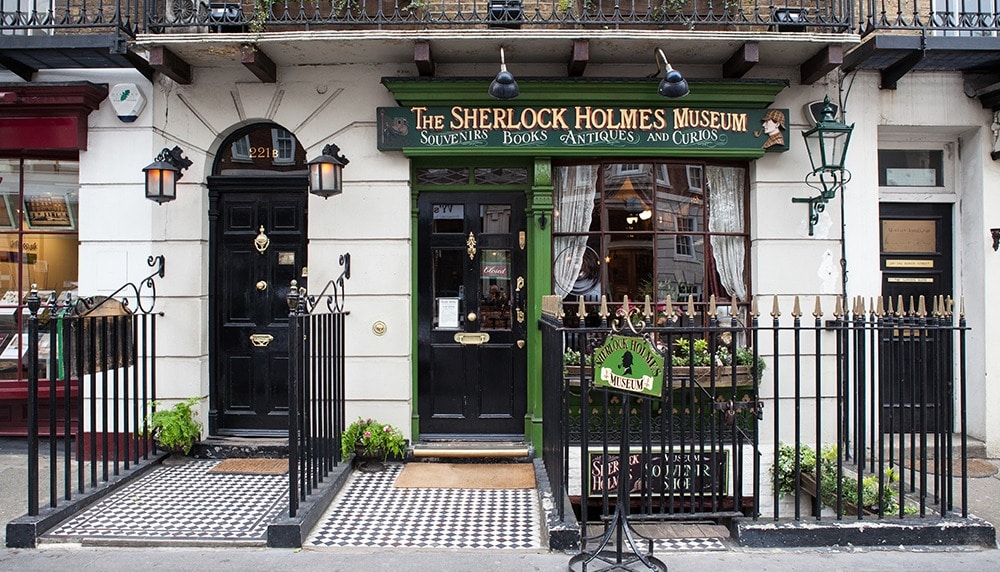China’s love of brand Britain is driving our leisure economy forward thanks to the UK’s strength in cultural innovation and a growing awareness of Chinese tastes, writes Tom Pattinson
Britain’s high street stores and retail sector might be struggling but that doesn’t mean the same is true for the leisure industry. In fact, the leisure economy is one of the UK’s fastest-growing sectors. It’s growing at twice the speed of the retail sector and accounts for 7.4 percent of the UK’s GDP.
The leisure economy covers everything from a night out down the pub, to a weekend away, to a trip to the cinema. It’s what we do in our spare time. And we are seeing a growth in leisure spending, at a time when the traditional retail sector suffers.
This is mainly due to changing habits and improved technology that has seen people spend less on things and more on experiences and more efficiently too. Gone are the days when people saved to buy a car, nowadays people use a ride sharing app, which frees up more money for discretionary spending. And experiences rather than products are where those extra pounds will go.
This is especially true among the younger demographic of Millennials and Generation Z spenders, who value their ‘personal brand’ above a company brand, and therefore would rather splash their cash on a music festival (the experience of which they can share on social media) than a pair of trainers (which only promotes an external brand rather than their own).
But this doesn’t mean that things are all rosy and light. Britain’s domestic leisure economy took a bit of a hit in the first quarter of 2018, with spending decreasing on the last quarter of 2017. According to a report by Deloitte, stagnant wages and rising inflation meant that a higher percentage of wages were being spent on essentials and often leisure expenditure is the first sector to feel the pinch. However, it is also thought that the “Beast from the East” – the cold spring weather that the UK experienced – could have also played a large part in this slow down. Whilst sunshine will see bar takings go up, poor weather will see them plummet. And who wants to brave the ice for a theatre trip or weekend at the coast in the snow? But while Brits may have spent less on going out in Q1 they spent more on weekend breaks abroad – winter sun anyone?
Coming to the UK

Visits from China to the UK have more than doubled in the last decade.
The Beast from the East didn’t slow inbound tourism from the Far East either. Tourism from China has been growing steadily in recent years in line with the growing Chinese middle class who have more disposable income and a desire for international travel. Visits from China to the UK have more than doubled in the last decade.
Visits from China to the UK have more than doubled in the last decade
“Between January and September 2017 there were a record number of visits from China to the UK – this is up 33 percent on the first nine months of 2016,” explains Travis Qian of Visit Britain. “Inbound spending between the same period was up 48 percent on the previous year – a record high,” he says. Visitors from China are some of the UK’s highest spenders; in 2015, they splurged an average of £2,688 per person during the course of their stay. The 349,000 Chinese visitors to the UK expected to arrive this year will spend a total of £772 million, a number that is expected to reach £1 billion by 2020.
Chinese tourists are demanding more from their trips abroad and are no longer satisfied with just a glorified shopping trip, and Britain is well placed to make sure that visitors return home with a full range of stories to tell from their experiences rather than just shopping bags.
Tickets to sporting events – especially Premier League Football or Wimbledon for example – are in high demand and active experiences such as whiskey tasting, driving or shooting trips also top the list for many high-end visitors.
“There is certainly interest among high-end Chinese visitors for these types of activity and the market as a whole is moving towards a more experiential form of travel where the focus is on having local, in-depth experiences rather than whistle-stop tours around the UK,” says Eve Baker of travel company Beiwei 55.
Britain’s has a unique mix of heritage and contemporary cool that makes Britain stand out from many of our European cousins. “We are both historically rich as a nation, taking pride in our heritage and historical landmarks, but we are also forward-thinking and creative,” says Baker. “To visit the UK is a prestigious thing, and for many Chinese people, it is not a case of if but a case of when” she says.
The Sherlock effect

The BBC’s Sherlock has been watched by more than 90 million people in China
And much of that image has been portrayed by our British TV exports to China. The BBC’s Sherlock has been watched by more than 90 million people in China and other shows such as Downton Abbey, Doctor Who and Merlin have made many British cities and landmarks destination targets.
British TV show sales to China soared by 90 percent in 2012 in no small part thanks to these hit shows, and they have continued to rise, making up £23 million in 2015-2016 sales.
“As the world finds more ways to watch great British shows, our content is riding a wave of popularity,” says Paul Dempsey, President Global Markets, BBC Worldwide. “The growing appeal of authored British drama in the U.S. and the hunger for titles that speak to a young, upmarket audience in China has put the UK in the premier league of international TV distribution,” he says.
Following the success of British export Peppa Pig, undersea, pre-school adventure show Octonauts, produced by London-based Silvergate Media, said in January last year that they had already received 4.1 billion downloads from China since launching. Their partnership with CCTV and Warner China has also seen their toy sales rise by 350 percent on the previous year.
“China is one of our most important markets, which is why we are delighted that Octonauts has gained millions of fans in the region,” said Waheed Alli, CEO at Silvergate Media. “We are excited to see the traction we have gained building a strong merchandising programme, deeper retail reach and a larger online retail presence. We are confident that these additional consumer touchpoints will increase exposure for the brand as it continues to grow in popularity.”
The game is on
Britain’s long history of creativity and innovation are not just helping export TV and film. The UK is also home to over 2,100 games development studios including a multitude of globally recognised leading studios, working mainly on mobile games and PC digital.
Britain is well placed to make sure that visitors return home with a full range of stories to tell from their experiences
“The UK is often regarded as the historical home of games development. Our unique blend of creativity and technical skills sets us apart from other markets,” explains Sam Collins, head of Commercial at Ukie, the trade body for games in the UK. It is this creative expertise that has led to over $2 billion of Chinese investment in the UK gaming sector in 2016-17 alone.
“The Chinese games market is crowded with highly successful games in a small number of genres and they are crying out for innovative and creative new content to offer to consumers,” says Collins. “The UK is a world-leading centre for game development and combining our exceptional creativity with the Chinese monetisation models is delivering great results.” Collins says that it is our historical pedigree, our education system and our unique talent pool that is driving the sector.
‘Brand Britain’ is very much about our unique heritage and our ‘contemporary cool’. It is Britain’s innovation and creativity that is in demand from Chinese audiences and these soft skills work hand in hand with China’s experience as a hard skill centre.
So whilst our high-street shops might be having a hard time, our museums, TV shows, and gamers are still waving the British flag with pride.


